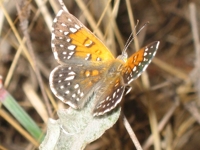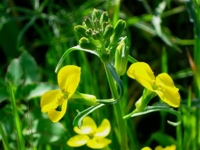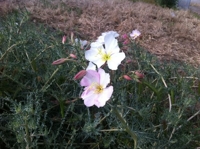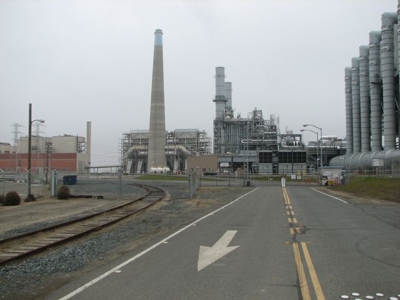Wild Equity Sues EPA for Failing to Curb PG&E Pollution in Antioch
For Immediate Release, June 3, 2015
Contact: Brent Plater, bplater@wildequity.org, Wild Equity Institute, (415) 572-6989
Wild Equity Institute Sues EPA for Failing to Curb PG&E Pollution in Antioch



From L to R: Lange’s Metalmark Butterfly, Contra Costa Wallflower, Antioch Dunes Evening Primrose
San Francisco, Calif.— Today the Wild Equity Institute filed an Endangered Species Act lawsuit in United States District Court against the Environmental Protection Agency (“EPA”) for failing to consult with the U.S. Fish and Wildlife Service about the effects of PG&E’s power plant pollution on three endangered species found at the Antioch Dunes National Wildlife Refuge.
“EPA has its head in the Antioch Dunes’ sand when it comes to PG&E’s power plant pollution,” said Brent Plater, executive director at Wild Equity Institute. “Other power plants have already taken measures to protect local communities and imperiled plants and animals, and it’s time EPA ensures it, and the corporations it regulates, play by the same rules.”
The Fish and Wildlife Service has known for years that nitrogen pollution from power plants near the Antioch Dunes National Wildlife Refuge is “virtually certain” to cause Antioch Dunes’ endangered species to go extinct. Because of this, the agency formally requested that EPA comply with the Endangered Species Act by “consulting” over PG&E’s power plant pollution’s effects on endangered species at the Antioch Dunes National Wildlife Refuge. The EPA has repeatedly refused to do so, even though another nearby power plant recently agreed to mitigate its pollution in response to Endangered Species Act claims.
Today’s lawsuit demands that EPA comply with the Endangered Species Act by initiating the requested consultation process, and ultimately address the impacts power plant pollution has on the Antioch Dunes National Wildlife Refuge and the plants and animals that call the refuge home. Matt Kenna, Public Interest Environmental Law and of Counsel, Western Environmental Law Center, is co-counsel with Mr. Plater in the case.
Background on the Gateway Generating Station and the Antioch Dunes Endangered Species

PG&E’s Gateway Generating Station
Gateway Generating Station is a large, natural-gas-fired power plant in Antioch, California that pollutes nearby communities, worsens the global climate crisis, and threatens the survival of three endangered species: the Lange’s Metalmark Butterfly, the Antioch Dunes Evening Primrose, and the Contra Costa Wallflower.
For many years Wild Equity has informed the EPA and PG&E that they must work with the Fish and Wildlife Service to assess the impacts of Gateway’s nitrogen emissions on the butterfly, as required under the Endangered Species Act. However, to date the EPA and PG&E have not fulfilled this legal duty.
The Lange’s Metalmark Butterfly, Antioch Dunes Evening Primrose, and the Contra Costa Wallflower have been protected by the federal Endangered Species Act for almost 40 years. They are endemic to the Antioch Dunes in Contra Costa County, a relict desert landscape left behind as California’s prehistoric deserts retreated from the Bay Area 140,000 years ago. Because of the Antioch Dunes’ isolation, many species found in the dunes are unique and very rare.
Sand dunes like the Antioch Dunes are nitrogen deficient, and increased amounts of airborne nitrogen emitted from Gateway changes the chemical composition of the dunes, creating soil conditions that are only suitable for the growth of invasive weeds. Under these polluted conditions, these species’ habitats are invaded by invasive weeds that would otherwise be unable to grow on the endangered species’ native landscapes.
Gateway’s emissions also harm local communities by contributing more ozone pollution and soot to an area already disproportionately overwhelmed by power plant pollution.
The Wild Equity Institute is building a healthy and sustainable global community for people
and the plants and animals that accompany us on Earth.

Leave a Reply
Want to join the discussion?Feel free to contribute!